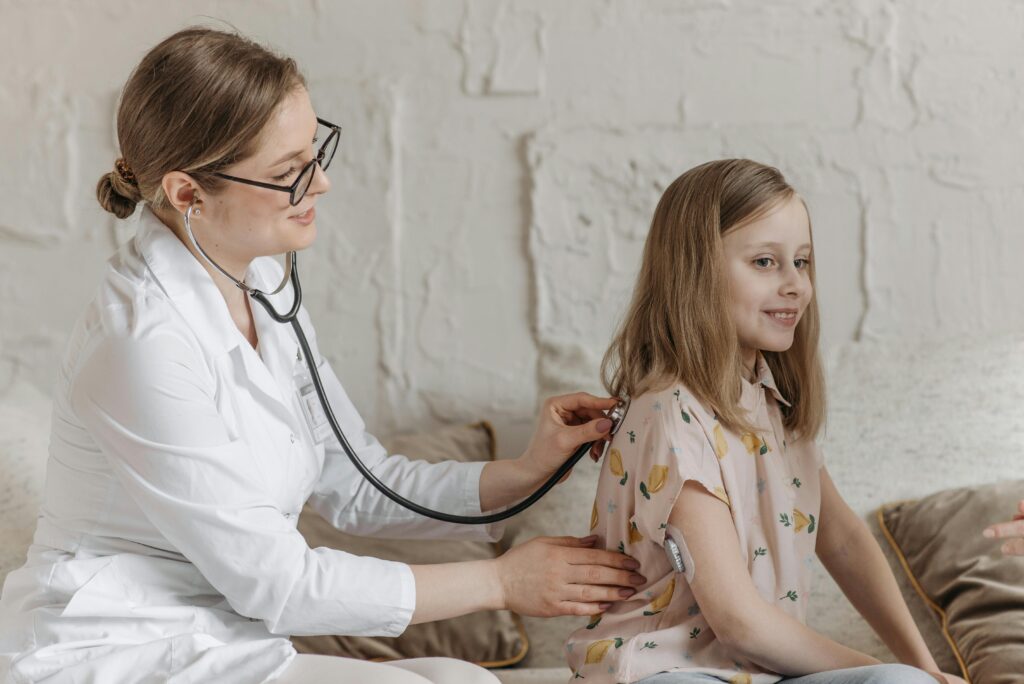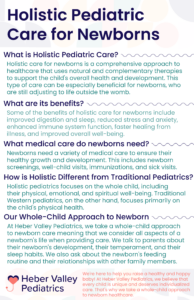Deciding whether to send your child to school when they’re feeling under the weather can be challenging for parents. On one hand, you don’t want your child to miss important lessons or fall behind in their studies. On the other, sending a sick child to school not only hinders their recovery but can also expose classmates and teachers to potential illness.
At Heber Valley Pediatrics, we understand the delicate balance parents must strike between keeping their child on track with school and ensuring they get the care they need. Knowing when to keep your child home, what symptoms to watch for, and when it’s time to visit your pediatrician Heber can make all the difference in ensuring your child’s quick recovery and protecting the health of others around them.
Common Symptoms: What to Watch For
While some symptoms are clear indicators that a child should stay home, others might be more subtle. For minor symptoms, use our walk in 5 minute clinic in heber city utah – no appointment necessary! First, let’s break down the most common symptoms and when you may want to keep your child home from school.
- Fever
A fever is one of the most obvious signs that a child is fighting off an infection. A temperature of 100.4°F (38°C) or higher is usually a clear signal to keep your child at home. A fever indicates that the body is battling an infection, whether it’s viral or bacterial, and your child may be contagious. Typically, it’s recommended that children stay home until they have been fever-free for at least 24 hours without the use of fever-reducing medications like acetaminophen or ibuprofen.
- Coughing and Sneezing
Coughing and sneezing can be tricky symptoms to gauge. A mild cough or the occasional sneeze might not be enough to justify a day off from school, especially if your child is otherwise feeling well. However, if your child has a persistent, deep cough that interferes with their ability to concentrate, sleep, or communicate normally, it may be best to keep them home. Similarly, if their sneezing is accompanied by a runny nose, sore throat, or headache, it could indicate the onset of a cold or flu, in which case staying home is advisable.
- Sore Throat
A sore throat can be a symptom of several different illnesses, including viral infections (such as the common cold) and bacterial infections (like strep throat). If your child’s sore throat is accompanied by a fever, difficulty swallowing, or swollen glands, it’s best to keep them home and possibly schedule a visit for pediatric care in Heber Valley. Strep throat is highly contagious and requires antibiotic treatment. Your child should stay home until 24 hours after starting antibiotics.
- Gastrointestinal Issues
Vomiting and diarrhea are clear reasons to keep your child at home. Not only are these symptoms uncomfortable and potentially dangerous if they lead to dehydration, but they are also highly contagious. Our male and female pediatricians like Dr. Dave Larson and Dr. Holly Richter in Utah are experienced in diagnosing and treating these conditions. Even if the vomiting or diarrhea stops after a few hours, your child should remain home for at least 24 hours to ensure their symptoms don’t return. Dehydration is a major concern with these symptoms, so it’s important to monitor your child closely and ensure they are staying hydrated.
- Rashes and Skin Conditions
Skin rashes can be caused by a variety of conditions, some of which are contagious. For example, chickenpox, impetigo, and hand, foot, and mouth disease all cause noticeable rashes and are highly contagious. If your child develops an unexplained rash, it’s best to keep them home and contact your pediatrician to determine the cause. If the rash is accompanied by a fever, it’s even more important to avoid sending your child to school.

When to Keep Your Child Home
Knowing when to keep your child home from school isn’t always easy, but there are some general guidelines from us at Heber Valley Pediatrics that can help you make an informed decision. Here are some specific conditions that warrant a day off from school and potentially a visit from our pediatrician Heber located:
- Fever over 100.4°F: As mentioned earlier, a fever is a clear sign that your child is fighting off an infection. Keep them home until they’ve been fever-free for 24 hours.
- Vomiting or diarrhea: These symptoms are not only uncomfortable but also a risk for dehydration. Your child should stay home until they have been symptom-free for at least 24 hours.
- Flu-like symptoms: If your child has body aches, fatigue, chills, or a cough that’s severe, they should stay home to recover and avoid spreading the flu to others.
- Contagious conditions like chickenpox or strep throat: If your child has been diagnosed with a contagious illness, they should stay home until they’ve been cleared by a doctor or after completing 24 hours of treatment (e.g., antibiotics for strep throat).
- Severe cold or respiratory symptoms: If a cold is causing severe coughing, shortness of breath, or nasal congestion that disrupts sleep or daily activities, it’s best to let your child rest at home.
By keeping your child home when they’re experiencing these symptoms, you’re not only helping them recover faster but also preventing the spread of illness to their classmates and teachers.
When to Visit Your Pediatrician
While many common childhood illnesses can be managed at home, there are times when a visit to your pediatrician is necessary. We offer walk-in hours for pediatric care in Heber Valley for the convenience of everyone in the area. If you have a mildly sick kid and are looking for a 5 minute clinic in heber city utah, try Heber Valley Pediatrics. Knowing when to seek medical attention can help prevent minor illnesses from turning into more serious health issues.
Prolonged Symptoms
If your child’s symptoms persist longer than expected, it’s a good idea to consult with your pediatrician. For example, a fever that lasts more than three days or a cough that persists for more than a week could indicate a more serious illness, such as pneumonia or bronchitis. Similarly, if your child continues to experience vomiting or diarrhea for more than 24 hours, they could be at risk for dehydration, which requires medical attention.
Severe Symptoms
Certain symptoms should never be ignored, and immediate medical care may be necessary. These red flags include:
- Difficulty breathing or rapid breathing
- Severe abdominal pain or persistent vomiting
- Signs of dehydration, such as dry mouth, no tears when crying, or reduced urination
- Persistent high fever (above 104°F) or a fever in a child under three months old
- Severe headache or neck pain accompanied by a fever
If your child experiences any of these symptoms, contact your pediatrician right away or visit urgent care.
Chronic Conditions
Children with chronic health conditions, such as asthma or allergies, may require more frequent visits to their pediatrician Heber to ensure their conditions are well-managed. If your child’s asthma symptoms are worsening or their allergies are not responding to medications, a pediatric checkup is essential to adjust their treatment plan.
Recurrent Illnesses
If your child seems to be getting sick frequently, it may be worth scheduling a consultation with your pediatrician. Recurrent illnesses could be a sign of an underlying issue, such as a weakened immune system, and your doctor can help identify the cause and suggest appropriate treatments.
Managing a Sick Day at Home
When your child is home sick, it’s important to create an environment that supports their recovery. Here are some tips for managing a sick day:
- Keep them hydrated: Encourage your child to drink plenty of fluids, such as water, clear broth, or electrolyte drinks, to prevent dehydration.
- Provide plenty of rest: Make sure your child is comfortable and able to rest. Rest is crucial for helping the body fight off infections.
- Use symptom-relieving treatments: Depending on the illness, you might want to provide medications for fever, cough, or congestion (always consult your doctor of pediatric care in Heber Valley before giving new medications).
- Isolate the sick child: To prevent the spread of illness to other family members, keep your child’s belongings separate and encourage frequent handwashing.
When It’s Okay to Send Your Child to School
While it’s important to keep children home when they’re genuinely sick, not all symptoms require a day off from school. Here are some scenarios where it’s generally okay to send your child to class:
- Mild cold symptoms: If your child has a runny nose, a mild cough, or is sneezing occasionally but feels well otherwise, they can likely attend school.
- Chronic but non-contagious conditions: Conditions like asthma, eczema, or allergies are typically manageable, and kids with these conditions don’t need to stay home unless they’re experiencing severe flare-ups.
- Post-recovery phase: Once your child has recovered from an illness and has been symptom-free for at least 24 hours, they’re likely ready to return to school. Make sure they are feeling well enough to participate in class and activities.
Trust Your Gut and Contact Your Pediatrician
As a parent, you know your child best. If you’re unsure whether your child should go to school or stay home, trust your instincts and don’t hesitate to contact your pediatrician Heber for guidance. At Heber Valley Pediatrics, we’re always here to help you make informed decisions about your child’s health. Whether it’s a minor cold or something more serious, don’t hesitate to reach out and schedule a visit with one of our trusted pediatricians. Remember, regular wellness checkups can help keep your child healthy year-round, so be sure to schedule those as well!





